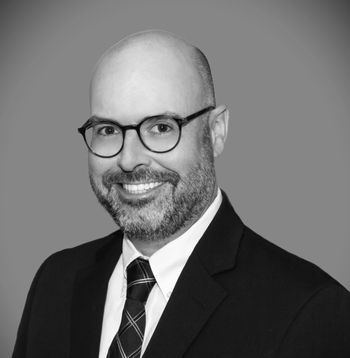PROF ELLWANGER: Fatherhood is under attack on campus
These efforts are part of a broader attack on the traditional family, at a time when the American family is already in an advanced state of decay.
By cautioning against using gender-specific words for parents, universities are following implicit guidance from the government.
Following the lead of Boston University and other institutions, Springfield College in Massachusetts recently provided students with guidance that discourages using the terms “father” and “mother” in favor of the genderless word “parent.” After a lengthy primer on the usage of neo-pronouns, the college’s website counsels the reader on “gender-inclusive terms,” suggesting that references to fatherhood and motherhood might be offensive in some way.
As Campus Reform reporting shows, this trend is not new: it’s been ten years since the U.S. Department of Education eliminated the terms “father” and “mother” from the student application for federal financial aid. The application asks instead for information on “Parent 1” and “Parent 2.” By cautioning against using gender-specific words for parents, universities are following implicit guidance from the government. Of course, these efforts are part of a broader attack on the traditional family, at a time when the American family is already in an advanced state of decay.
[WATCH: Americans want to protect Father’s Day from gender ideology]
Unmarried women currently make up approximately 40% of all U.S. births, numbers that have increased dramatically over the past 50 years. Undoubtedly, this trend means that many American children will not be spending this Father’s Day with their dads. Statistics show that for many ethnic minority groups in America, the number of births to unwed women far exceeds the national average. This matters because research repeatedly shows that children are most likely to flourish when they live with their married, biological mother and father. Children raised in this situation have greater prospects for academic success, lower rates of criminality, and higher incomes as adults.
Why, then, at a time when family formation in America has fallen into catastrophe, are our institutions promoting ideas that will deepen the crisis – and worsen outcomes for children belonging to minority groups that already suffer disproportionate levels of poverty and criminality? Why are colleges and universities injecting more poison into students rather than teaching the ways to ensure the best outcomes for their future children?
[RELATED: Springfield College tells students to avoid using terms ‘mother’ and ‘father’]
The answer, it seems, can only be the slavish devotion to wokeness and DEI initiatives that is displayed by so many within higher education. Families, they insist, “come in all shapes and sizes.” That may be true, but the fact is that every person on the planet had a biological mother and father. Every other “shape and size” for a family is a product of social conventions rather than natural ones. Yes: there are many different arrangements for the structure of family. But campus ideologues cannot concede that some of these structures prove to be more stable and nurturing environments than others. In the name of politeness, inclusion, and diversity we must pretend that any and every family arrangement is as good as any other – even if doing so ultimately means more suffering for children (particularly and disproportionately children in the groups that many academics commit themselves to “helping”).
A mother and a father nurture their children differently, and each parent makes a distinctive contribution to raising a child. This distinctiveness stems from the temperamental and biological differences between men and women. Just as the very existence of a child is a product of their union, a proper upbringing depends on the complementary strengths of a mother and a father. If the people in America’s universities were as committed to “social justice” as they claim to be, they would begin by speaking these truths about family formation. Some of them would be uncomfortable – unpalatable even, to modern people. But in voicing those truths, they could bequeath them to a generation that includes many people who neither learned nor benefited from them. This would be a great first step toward helping American children and the communities in which they live. This Father’s Day, every parent should commit themselves to talking about these issues at home, with the children they are blessed and honored to raise. They should also think carefully about which college their sons and daughters might one day attend.

